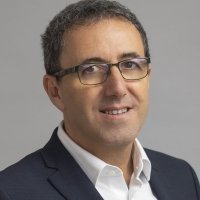Water, Conflict, and Peacebuilding in Development: Lessons for Practitioners (Toolkit Launch)
With almost 800 million people currently lacking access to clean water and two-thirds of the world’s population projected to face conditions of severe water stress by 2025, disputes over water are a growing global concern. But while dwindling water supplies sharpen focus on conflict, long-term peacebuilding opportunities are often overlooked.
“Water can be a powerful connector, encouraging cooperation and negotiation in lieu of competition or violence,” said Melissa Brown, director of the U.S. Agency for International Development’s Office of Conflict Management and Mitigation.
Brown opened an expert panel at the Wilson Center on February 24 for the release of USAID’s Water and Conflict Toolkit, a document developed in collaboration with the Wilson Center’s Environmental Change and Security Program that investigates the links between water management, conflict and fragility, and peacebuilding.
“In almost all of the countries where we work on water, we have to address conflict issues,” said Chris Kosnik, acting director of the USAID Office of Water, which last year released the agency’s first ever Water and Development Strategy. The strategy aims to provide an additional ten million people with access to improved water supply services, six million people with access to improved sanitation services, and two to three million people with access to improved agricultural water productivity by 2018.
However, 90 percent of the strategy’s 30 priority countries “exhibit a significant level of fragility” and almost 70 percent are considered “conflict-affected,” said Kosnik. “You can see that there’s no way we could extract water and conflict.”
Reaching New Audiences
“A lot of times we believe that scarcity drives conflict,” said Aaron Wolf, professor and department chair of geosciences at Oregon State University, when in fact, “scarcity is not the sole driver of conflict; it’s not even the primary driver of conflict.”
Wolf directs the school’s Program in Water Conflict Management and Transformation and has been at the forefront of major efforts to understand and address international water conflict. “What we found in the Basins at Risk study was that if you have a rapid change that exceeds the institutional capacity to absorb the change, that’s where you find conflict,” he said. In practice, this means the management of shared water resources is as much about governance mechanisms as it is about geography.
The trouble is, few people are experts in both fields. While water specialists focus on the hydrologic features that unite river basins, political scientists tend to focus on the human features that divide them, like state borders, Wolf said. “Our challenge now is to manage them both, to recognize that they’re both legitimate, and to manage the water as if there were no political boundaries while recognizing and taking into account all of the legitimate needs, concerns, and aspirations that those boundaries represent.”
The toolkit addresses this challenge by promoting cross-sectoral collaboration among development practitioners – a critical goal given the scope and complexity of the issues at stake, said Geoff Dabelko, senior advisor to ECSP and director of Environmental Studies in the Voinovich School of Leadership and Public Affairs at Ohio University. Through an index of lessons learned, intervention examples, and guidance on assessing conflict risk and peacebuilding potential, the toolkit encourages development practitioners to think as broadly as possible about how their efforts interact with water and conflict.
Interdependence An Incentive for Peace
Addressing conflict effectively in development not only requires attention to prevention and mitigation but also seizing peacebuilding opportunities when they arise.
Gidon Bromberg, Israeli director of EcoPeace/Friends of the Earth Middle East, regrets that past development efforts in the Middle East neglected water’s peacebuilding potential. “We saw lots of laying of pipes…but there was no recognition that the laying of a pipeline can be far more meaningful and far more impactful if relationships are developed between the communities that those pipelines serve.”
When opposing communities do come together around shared water resources, said Bromberg, “you literally see the penny drop, because there’s suddenly an understanding of interdependence.” This can build trust that leads to cooperation, creating a “peace dividend” that extends beyond the water sector. “Whatever you do of course impacts your community, but whatever your neighbor does also impacts you, and vice versa.”
Interventions should still appeal to people’s self-interest, however. Even when conflicting groups recognize the benefits of cooperation, “the individuals who make the decisions have an individual disincentive to cooperate,” said Wolf. “You can’t risk being seen as generous to the other side,” agreed Bromberg, “you must always identify your own self-interest and stand up to those who condemn you for working with the other side by speaking to your self-interest.” But it is possible to design programming that speaks to self-interest while also ensuring mutual gain, he said – “then you’re really changing mindsets on the ground.”
Bromberg noted that self-interest is what brought Israeli and Palestinian politicians together to raise awareness of the plight of the lower Jordan River in 2010, for example. “They’re jumping into the river together not because they’re best friends. They’re not. We’re in the midst of conflict; there’s heightened animosity…They’re jumping into the river together despite the conflict.” Acts like these send a powerful message and are essential for the creation of political will for change, he said.
In Wolf’s view, what is needed are “champions that can stand up – despite their constituents, despite their political parties, sometimes despite their country’s wishes – and say ‘yes we are going to cooperate, simply because it makes sense.’”
Determining Success
Still, simply bringing opposing parties together is not always enough. “It’s not just a matter of coming together for one discussion; it’s about how that relationship develops over time,” said Sandra Ruckstuhl, a co-author of the toolkit and senior social scientist at consulting firm Group W. In other words, the success of peacebuilding efforts should be measured according to the quality of engagement rather than just the quantity.
“You used to think if there was a deal, it was a good deal,” said Wolf. But more recent research, much of which comes from the Israeli-Palestinian context, shows that “a lot of times a deal just basically cements inequities or power imbalances.”
Because “conflict can hide inequality,” Bromberg said, joint fact-finding efforts are crucial to establishing a basis for mutual understanding. He noted collaborative research conducted by Jordanian, Palestinian, and Israeli scientists was instrumental in convincing all sides to accept mutual responsibility for the degradation of the Jordan River.
Water-related conflict remains a key development challenge, particularly in the face of growing water scarcity. But disentangling the complex relationship between water, conflict, and peace, as the toolkit helps to do, offers reason for optimism. “Once you build trust over one issue – and water is a wonderful issue to build trust over – there’s no end to where that trust can lead,” said Bromberg.
Event Resources:
Drafted by Moses Jackson, edited by Schuyler Null and Lauren Herzer.
Speakers


Professor and Associate Dean, George V. Voinovich School of Leadership and Public Affairs, Ohio University; Associate Senior Fellow, Environment of Peace Initiative, Stockholm International Peace Research Institute
Hosted By

Environmental Change and Security Program
The Environmental Change and Security Program (ECSP) explores the connections between environmental change, health, and population dynamics and their links to conflict, human insecurity, and foreign policy. Read more


Middle East Program
The Wilson Center’s Middle East Program serves as a crucial resource for the policymaking community and beyond, providing analyses and research that helps inform US foreign policymaking, stimulates public debate, and expands knowledge about issues in the wider Middle East and North Africa (MENA) region. Read more
